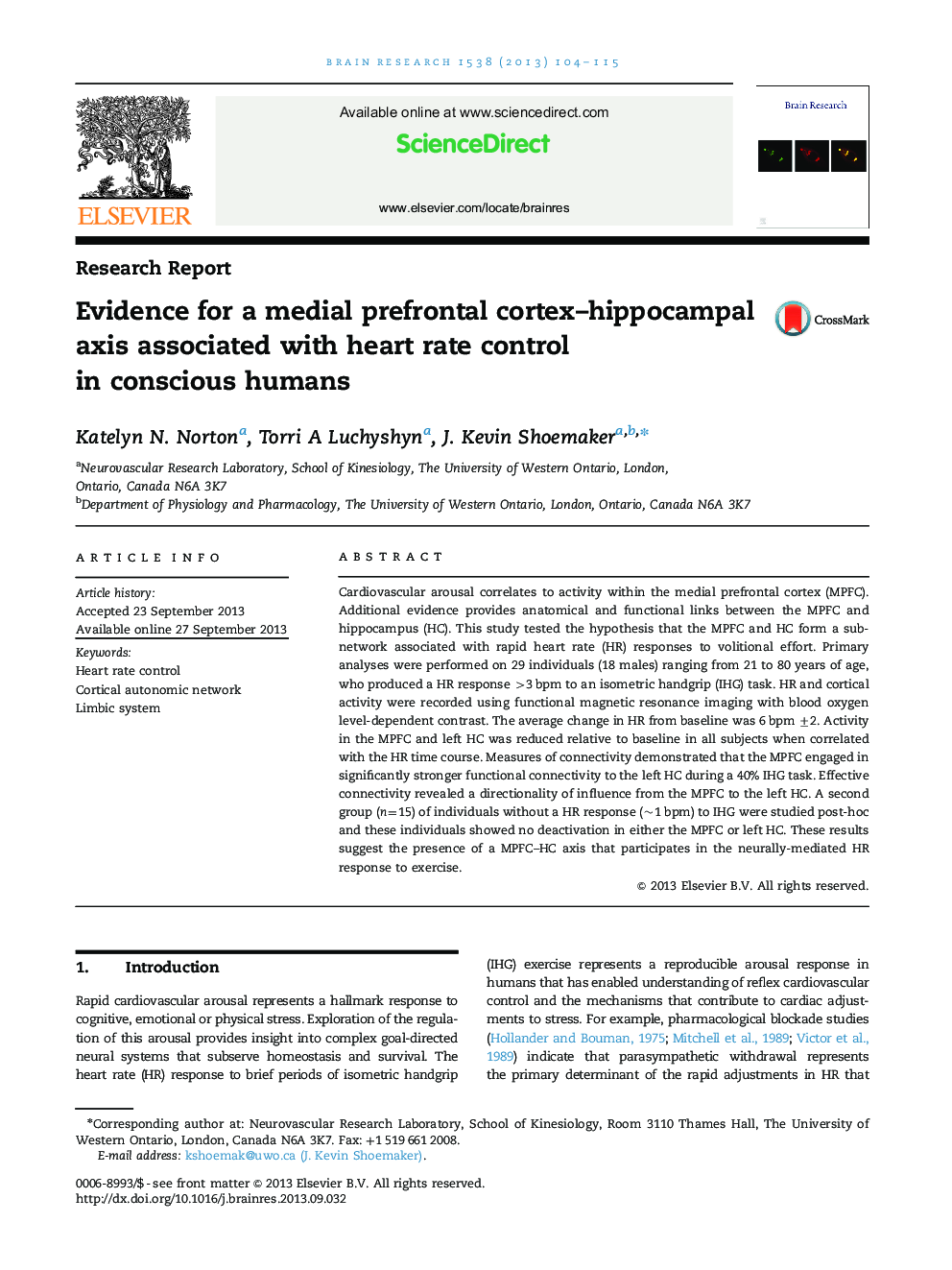| Article ID | Journal | Published Year | Pages | File Type |
|---|---|---|---|---|
| 6263686 | Brain Research | 2013 | 12 Pages |
â¢A hippocampus-medial prefrontal cortex axis in the control of reflex heart rate is proposed.â¢The increase in heart rate with handgrip exercise was associated with hippocampus and medial prefrontal cortex deactivation.â¢Aging affected this neural axis in a manner that was detrimental to heart rate control.
Cardiovascular arousal correlates to activity within the medial prefrontal cortex (MPFC). Additional evidence provides anatomical and functional links between the MPFC and hippocampus (HC). This study tested the hypothesis that the MPFC and HC form a sub-network associated with rapid heart rate (HR) responses to volitional effort. Primary analyses were performed on 29 individuals (18 males) ranging from 21 to 80 years of age, who produced a HR response >3 bpm to an isometric handgrip (IHG) task. HR and cortical activity were recorded using functional magnetic resonance imaging with blood oxygen level-dependent contrast. The average change in HR from baseline was 6 bpm ±2. Activity in the MPFC and left HC was reduced relative to baseline in all subjects when correlated with the HR time course. Measures of connectivity demonstrated that the MPFC engaged in significantly stronger functional connectivity to the left HC during a 40% IHG task. Effective connectivity revealed a directionality of influence from the MPFC to the left HC. A second group (n=15) of individuals without a HR response (~1 bpm) to IHG were studied post-hoc and these individuals showed no deactivation in either the MPFC or left HC. These results suggest the presence of a MPFC-HC axis that participates in the neurally-mediated HR response to exercise.
